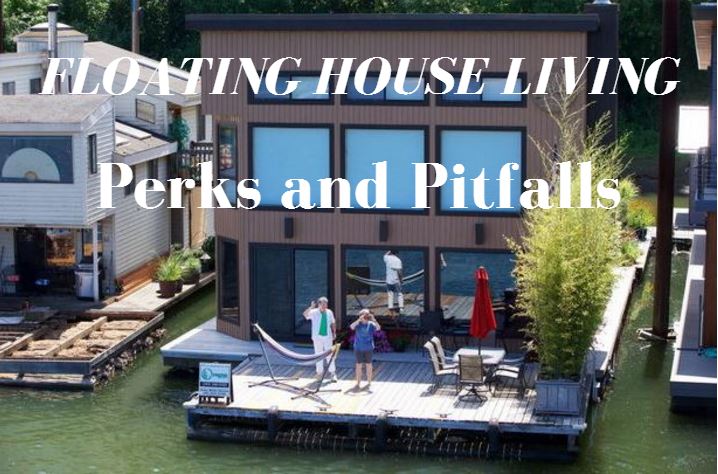
As you’re biking or driving along the river, you see a seemingly idyllic life: People on their docks in front of their quaint, quirky or quite grand floating houses. Before you take the plunge and move everything you own to a bobbing abode, learn the real perks and pitfalls of living in a home anchored to a moorage.
By Janet Eastman | The Oregonian/OregonLive
Perks
Real estate agent Graham Marden of Berkshire Hathaway Northwest Real Estate has been selling floating homes – he does not rent them – for 20 years. His clients appreciate the ever-changing scenery, sometimes even towing their house around rivers and states to a new dock.
Unlike landlocked waterfront homes, river dwellers can open up their windows, drop a fishing line and catch dinner, Marden jokes. There’s no closer view of wildlife in the water and in the air, and friends you barely knew want to spend weekends visiting you on your scenic deck.
Still interested in taking a nibble on residing in a floating house? After sinking during the recession and housing bubble, the floating real estate market is rising again, just like homes on terra firma. Total sales of floating houses in the Portland Metro area jumped from 45 in 2012 to 53 in 2013 and 67 in 2014, says Marden, who predicts 75 to 80 total sales this year. “You can see good value on the river,” he says. “As the available inventory of slips diminishes, the values should continue to gain in the future.”
Pitfalls
Floating homes aren’t for everyone. Although many people living on the water say they never want to move back to dry land, others grow weary after a few years of hauling groceries down the ramp and walking garbage back up.
Another floating house drawback is space. The floats are parked about 10 feet apart – you have to like your neighbors and their music. Most moorages do not have garages, and scarce carports and storage units have rent wait lists.
Here’s what you need to know before you decide to take the plunge into living in a floating house.
First, what’s the difference between a floating home and a houseboat? Floating home: A home built on floats that is anchored to a semi-permanent location on the water.
House barge: A floating home with a hull that is constructed for towing or navigating the water if the owner wants to relocate. A house barge houses people directly on the water, but it does not need to comply with the construction and utility requirements applicable to floating homes. House barges are more typical in the Seattle area.
Houseboat: A live-aboard vessel that has its own motor and is free to travel the waterways, not having to be moored in a permanent location.
Continue to full article here.
Posted by Scot Freerksen “The Lake Guy”
